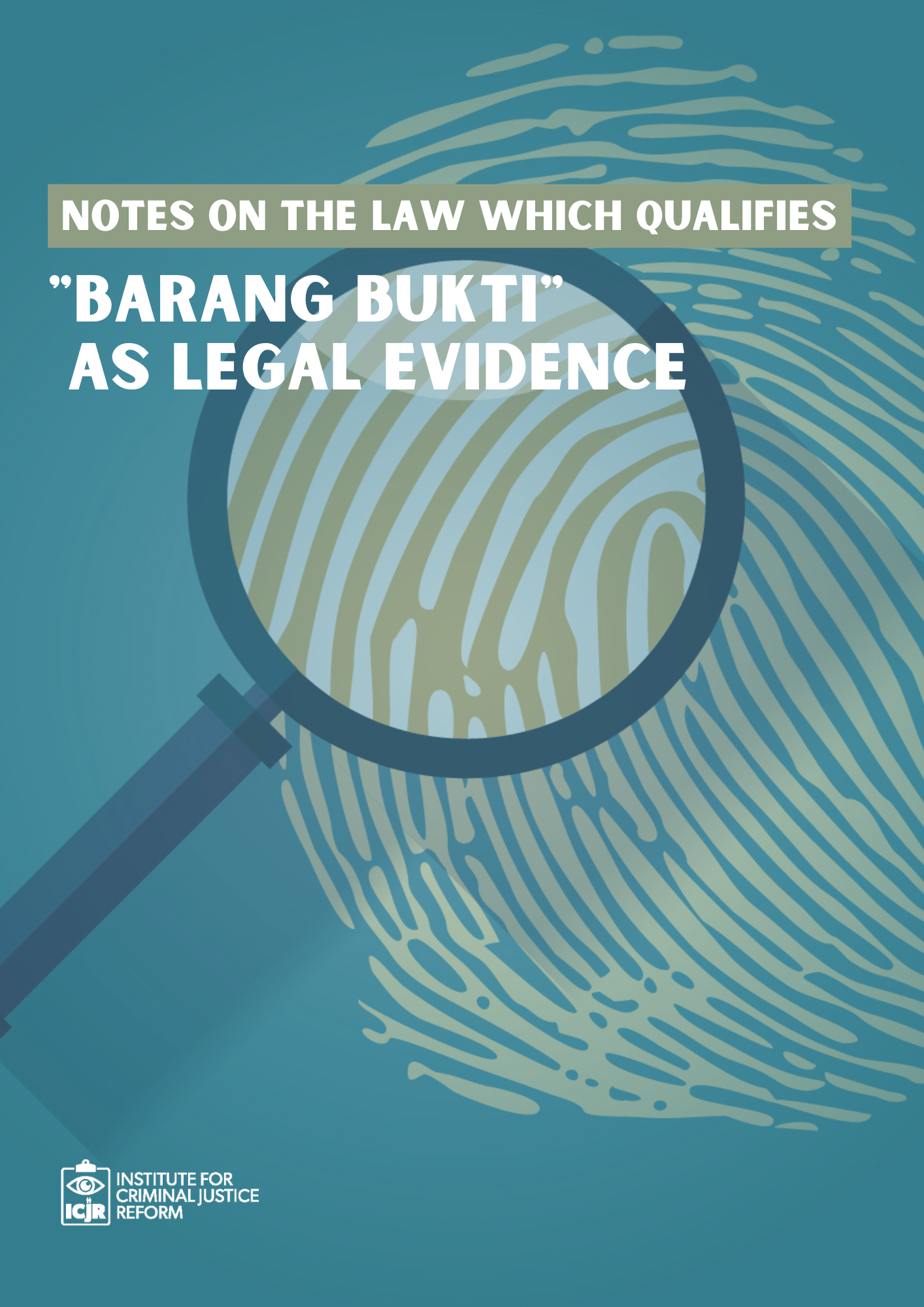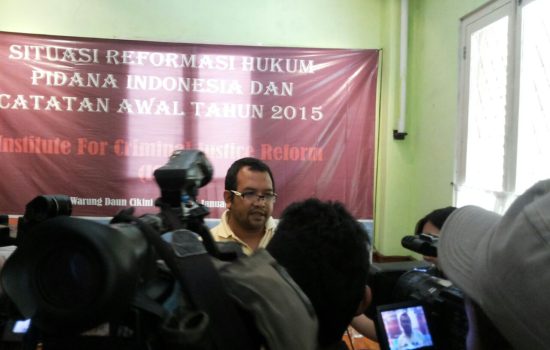Under the criminal justice system in Indonesia so far, the terms “legal evidence” and “confiscated objects” are distinguished. In terms of legal definition and theory of law of evidence, both have different roles and functions in the truth finding process. To put simply, confiscated objects usually refer to any objects related to a crime which are then confiscated by the law enforcement authorities. Meanwhile, the term “legal evidence” is limited in its forms as stated in the criminal procedural law (i.e. expert statement, witness statement, defendant statement, judges’ indication, letter, electronic evidence), which then will be used as a basis for proving a criminal conduct. In this context, both evidence and confiscated objects principally have a role that to some extent can determine a person’s criminal conviction.
However, in certain cases, identifying object either as evidence or confiscated objects may be difficult, for example when the disputed object is in the form of a letter. To consider a confiscated object as legal evidence, it is still required witness/expert testimony that can ‘explain’ or ‘describe’ the object. That is also always a valid question when discussing the relationship between confiscated objects and legal evidence. Until recently, the discussion regarding confiscated objects and legal evidence has been developed after the enactment of the Law on Sexual Violence (TPKS) in May 2022 which qualifies confiscated objects as legal evidence.
This paper will enrich our understanding on how confiscated objects and legal evidence work in determining a person’s guilt in the criminal justice process, both in terms of their use in criminal cases in general, and specifically in cases of sexual violence after the development of criminal procedural law regulated under the TPKS Law which sort of merges the two concepts.




